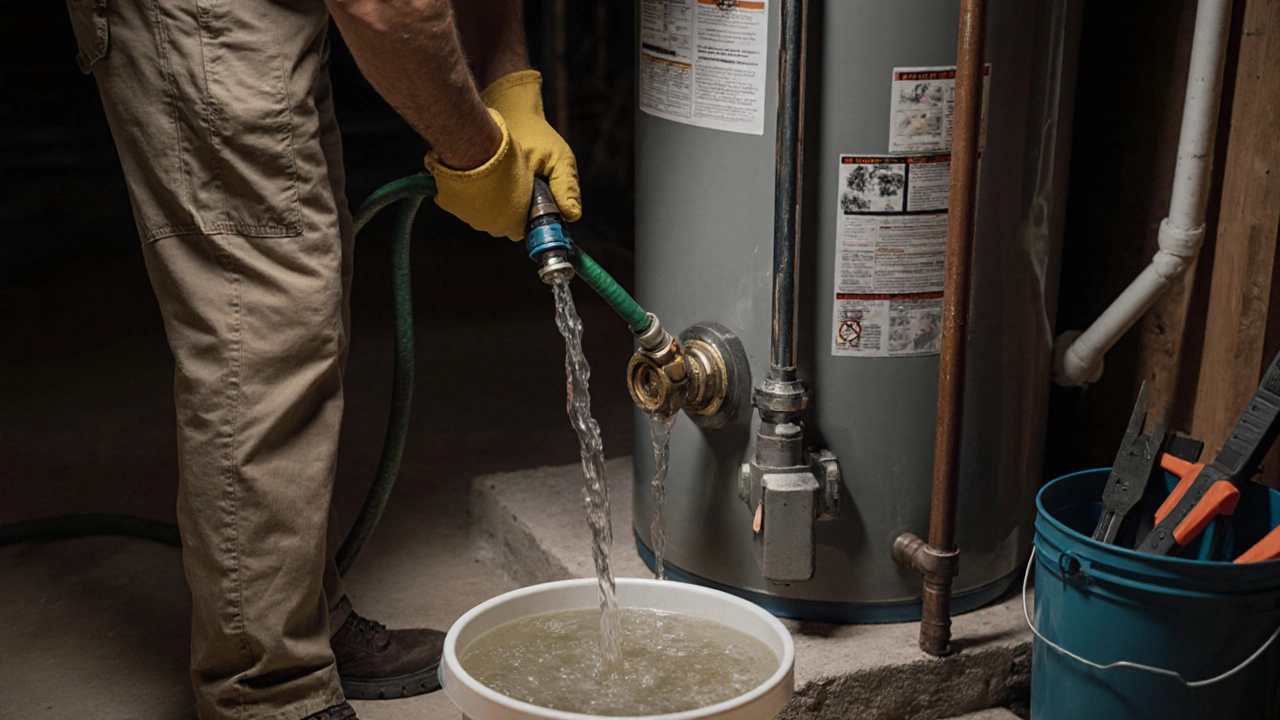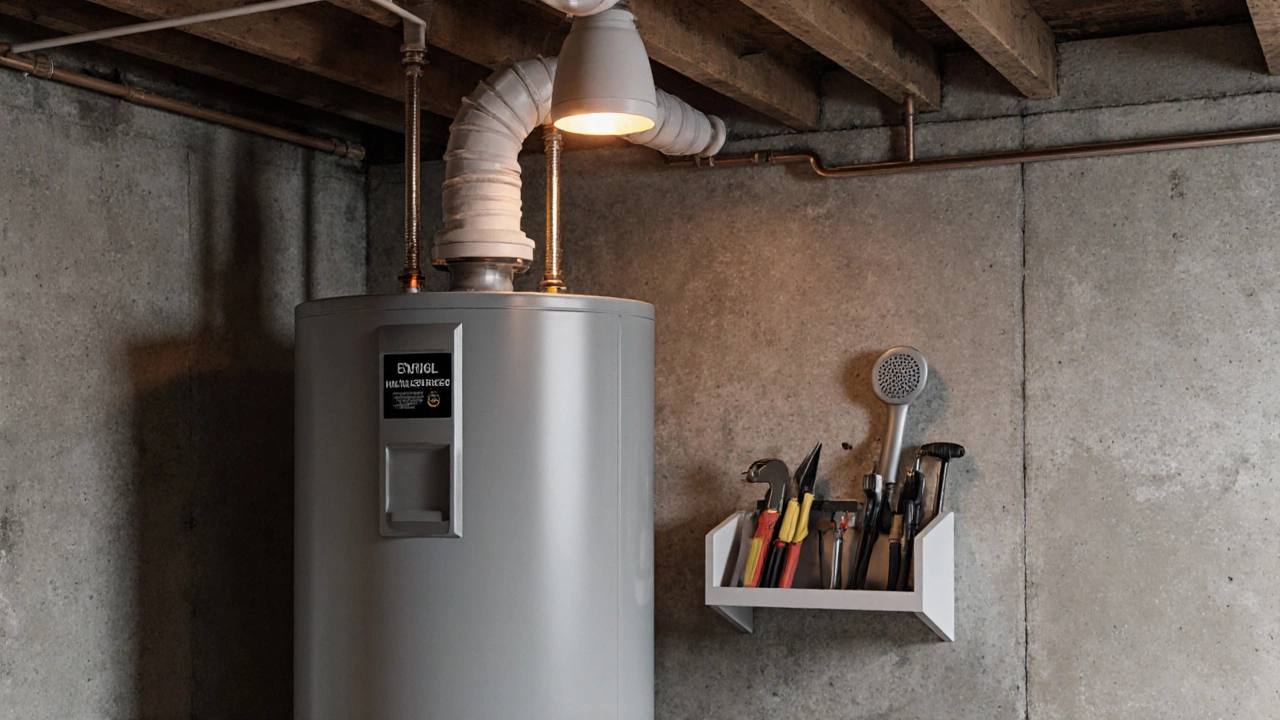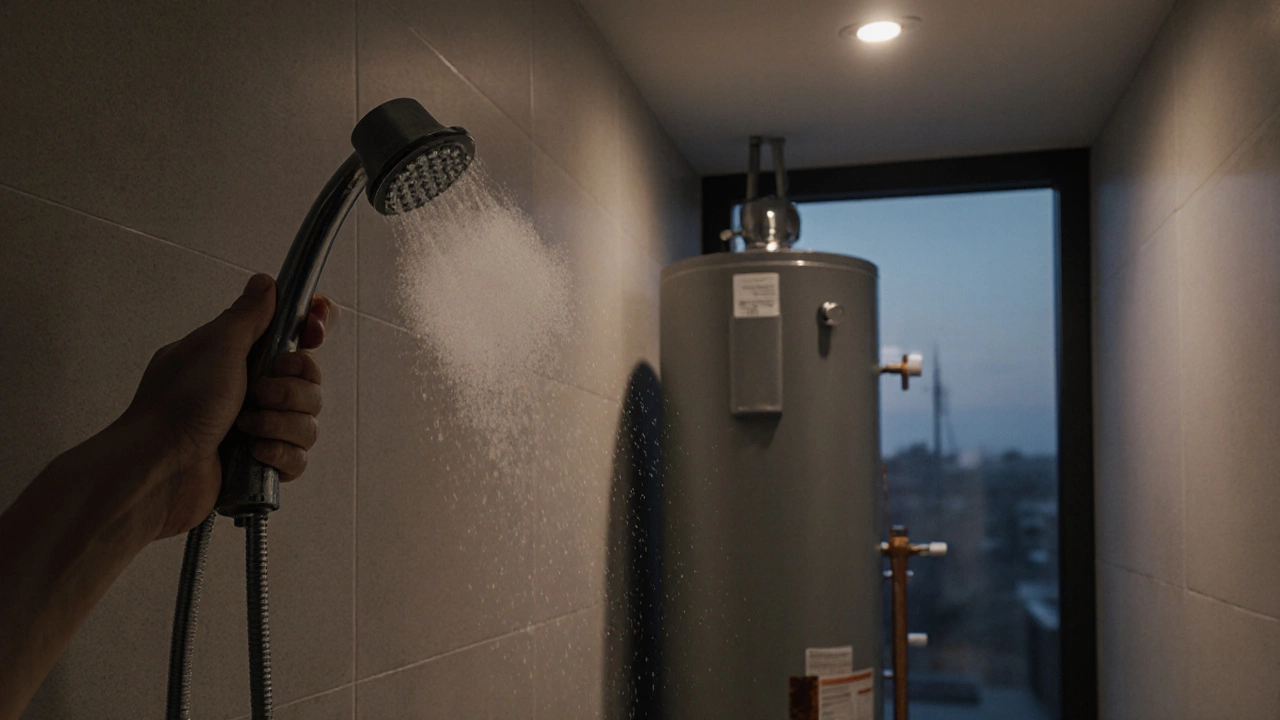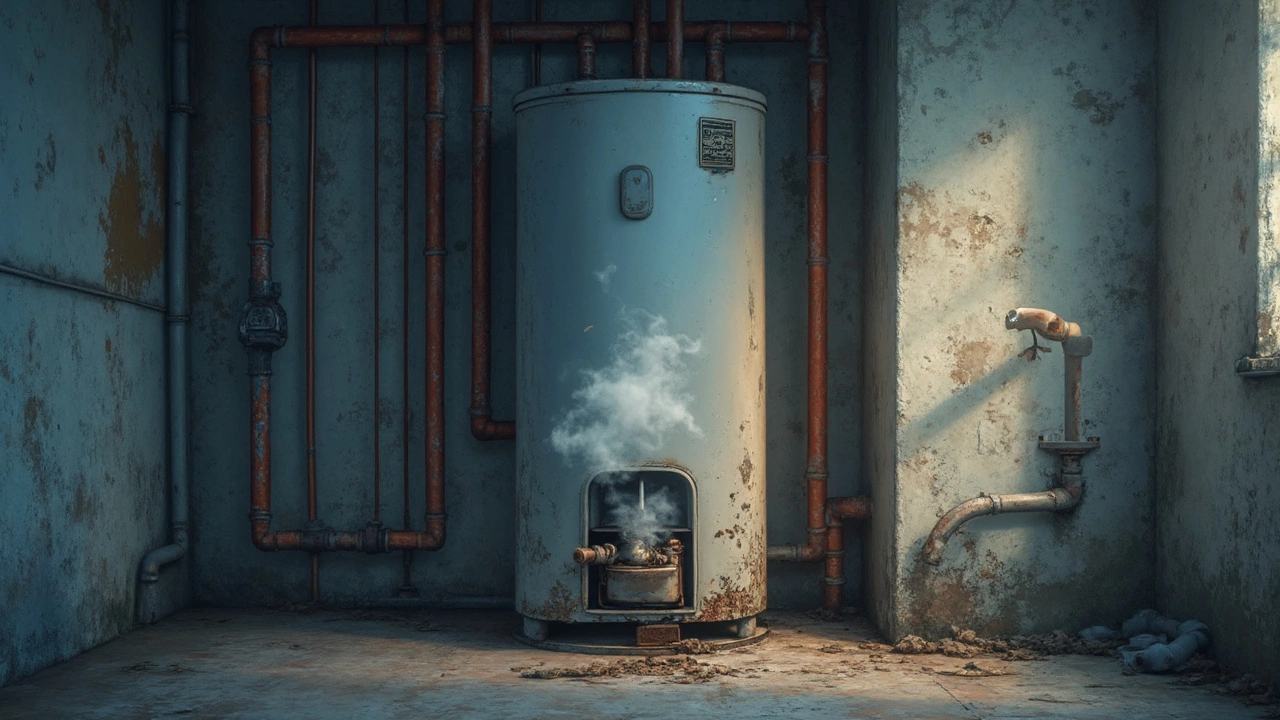
Flush your water heater once a year to prevent sediment buildup, lower energy bills, and avoid costly leaks. Learn how to do it yourself and when to call a pro.
If you’ve ever wondered how many years your water heater will keep working, you’re not alone. Most homeowners think a heater lasts forever, but the reality is a bit different. Knowing the typical lifespan helps you budget for a replacement and avoid unexpected cold showers.
Electric tank water heaters usually last between 8 and 12 years. Gas tank models tend to stretch a little longer, often 10‑15 years, because they have fewer electrical components that can fail. Tank‑less (on‑demand) units can reach 20 years or more, but they’re pricier upfront.
These numbers are averages. A brand‑new, high‑quality unit installed by a professional can beat the average, while a cheap model in a hard‑water area may die early.
Water quality. Hard water leaves mineral build‑up inside the tank, causing the heating element to work harder and corrode faster.
Installation. Incorrect pipe sizing, missing a pressure‑relief valve, or poor venting for gas heaters can create stress that shortens the system.
Usage patterns. Families that use a lot of hot water (multiple showers, laundry, dishes) run the heater more often, which adds wear.
Maintenance neglect. Skipping the annual flush, not checking the anode rod, or ignoring strange noises will speed up failure.
1. Flush the tank yearly. Pull the drain plug, let the water run until it’s clear, and close it back up. This removes sediment that can overheat the element.
2. Check the anode rod every 2‑3 years. The rod attracts corrosion; replace it when it’s more than 50 % worn. A fresh rod can add 5‑10 years to a tank’s life.
3. Install a water softener if you have hard water. Softened water reduces scaling inside the tank and on the heating element.
4. Set the thermostat wisely. 120 °F (49 °C) is hot enough for most needs and reduces stress on components compared to higher settings.
5. Schedule a professional inspection. A qualified plumber can spot leaking connections, pressure‑relief valve issues, and other hidden problems before they cause a breakdown.
Following these steps won’t guarantee forever, but it will push your heater well past the average lifespan.
Listen for rumbling or popping noises – that’s mineral build‑up shifting. Look for rust‑stained water, leaks around the base, or a sudden drop in hot‑water output. If the heater is older than the average lifespan for its type, start shopping for a replacement before you’re left in the cold.
Replacing a water heater is a good chance to consider a more efficient model. Modern units use less energy, which can lower your bills and qualify for government incentives.
In short, a water heater’s life hinges on quality, installation, water, and care. Keep up with simple maintenance, watch for warning signs, and you’ll enjoy hot water for years without surprise breakdowns.

Flush your water heater once a year to prevent sediment buildup, lower energy bills, and avoid costly leaks. Learn how to do it yourself and when to call a pro.

Learn how long water heaters typically last, what factors affect their lifespan, maintenance tips to extend service, and when to replace a failing unit.

Discover the typical lifespan of different water heater types, factors that affect durability, warning signs, maintenance tips, and when to replace versus repair.

Water heaters are notorious for wearing out way faster than most people expect. This article breaks down the real reasons behind their early failures. You'll find out how mineral buildup, water quality, usage habits, and poor maintenance team up to wreck your heater. We’ll also talk about things you can actually do to extend your water heater’s life. If yours hasn’t failed yet, you’ll want to read this before it does.